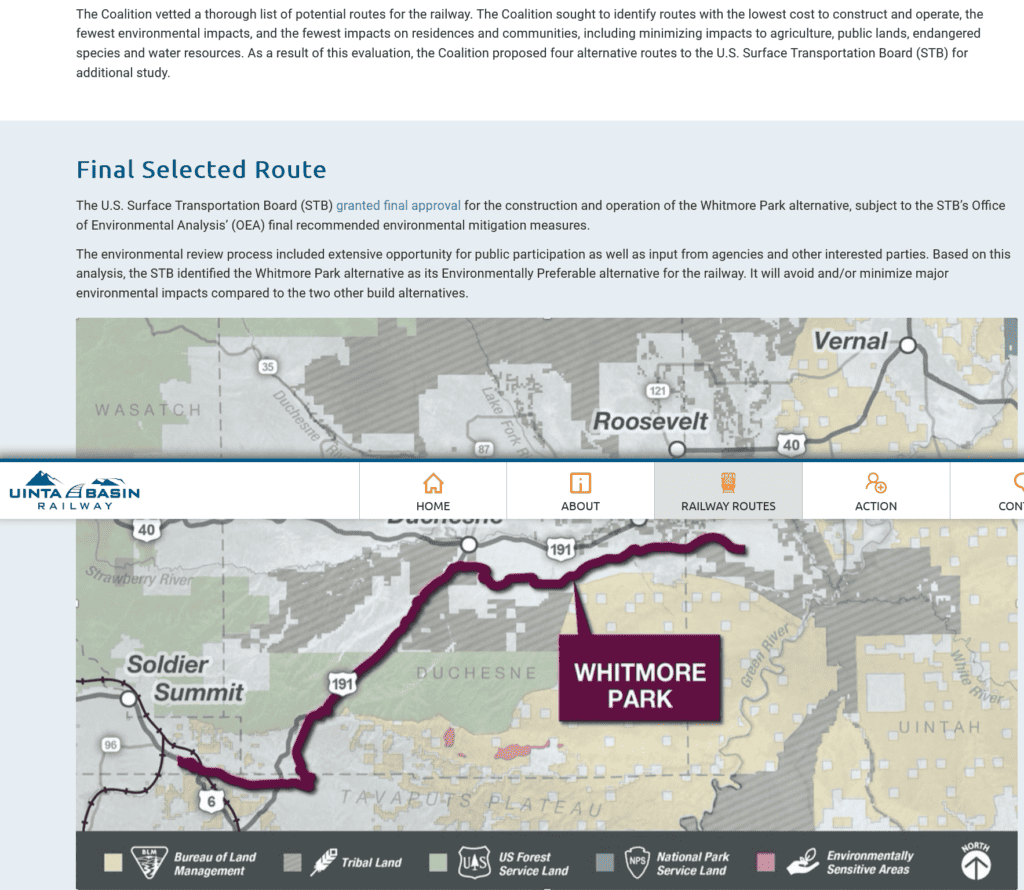
If you look at media coverage of this issue, sometimes you don’t even see the Ute connection mentioned. I wasn’t keeping a list, but ran across a recent story from a few days ago on NPR from Aspen Public Radio in which Utes were not mentioned among the folks who support the railroad.
The below op-ed ran in the Denver Post on August 14, 2023.
It’s also interesting what Chairman Murray of the Ute Tribe Business Committee has to say about consultation on the Camp Hale Monument designation, and the Tribe’s hunting and fishing rights.
As Chairman of the Ute Indian Tribe Business Committee, I am shocked and disappointed by the actions of Gov. Jared Polis, U.S. Senators Michael Bennet and John Hickenlooper, and other state lawmakers that reflect disregard and contempt toward our peoples’ ancestral ties to Colorado.
Ute Indians occupied what is now the state of Colorado from time immemorial. Although the federal government forced us to relocate to eastern Utah in what we today call our Uintah and Ouray Reservation, Colorado remains our ancestral homeland.
Once we were forcibly relocated to the arid Uinta Basin, energy mineral production has become the main source of livelihood for our people, who would otherwise struggle to put food on the table, access education, and provide shelter for our families.
The Uinta Basin Railway Project would provide much-needed infrastructure and allow our Tribe to access energy markets nationwide, but Colorado is dead set on standing in our way. Governor Polis and Colorado lawmakers are lodging a campaign to shut down this project simply because it would connect our oil with a wider market.
As planned, the Uinta Basin Railway is an 88-mile single-track rail line that would connect the Uinta Basin in northeastern Utah to the National Railway Network, providing energy mineral producers in this region with the infrastructure needed to access markets throughout the nation for the first time. About eight miles of track would cross Tribal lands on the Uintah and Ouray Reservation.
While the federal permitting process is near completion, Eagle County, Colorado, has joined environmental advocacy groups in filing suit asking that these federal permits be set aside, causing yet further delay in groundbreaking on the project.
Senators Bennet and Hickenlooper are using the recent derailment accident in Ohio as justification to deny us the ability to market and transport the oil produced on our land from our Reservation. This is a flawed comparison. The Ohio derailment involved highly hazardous, flammable substances. The unique crude oil we produce from our Reservation is a waxy product that does not flow like regular oil and is not flammable. It is transported by rail as a solid, not as a hazardous liquid.
Efforts by Polis and Colorado lawmakers to block this important project reveal their deference to environmental lobbyists and advocacy groups whose livelihoods do not depend on sustainable energy development.
These groups blindly oppose any and all oil development, and Colorado officials have clearly bought in. It is a shame that Colorado continues to act with no regard for the adverse impacts on a marginalized people who have long been stewards to the lands and resources they claim to protect. This is not environmental justice. In fact, it is the very opposite.
Opposition to the Uinta Basin Railway Project is not the only recent example of Colorado’s dishonorable treatment of our Tribe.
We retained hunting and fishing rights within Colorado boundaries under our treaties with the United States, but our efforts to work in cooperation with the Colorado state government to exercise and enforce our treaty rights have been stonewalled every step of the way.
Following years of refusing to meet with us as the elected leadership of the Ute Indian Tribe on this issue, Governor Polis and his administration are now refusing to enter into a cooperative agreement surrounding the exercise of our treaty rights. Governor Polis has no authority whatsoever to interfere with our treaty rights, and our Tribe plans to proceed in exercising our rights as affirmed by the Supreme Court in its 2019 opinion in Herrera v. Wyoming.
Unfortunately, the Biden Administration has followed Colorado’s lead in ignoring our treaty rights surrounding our ancestral homelands.
President Joe Biden recently established the Camp Hale National Monument in the middle of our ancestral lands. This was done with no government-to-government consultation with our Tribal leadership whatsoever.
Over a century after our people were stripped from our homeland and pushed into the Utah desert, the Biden Administration now seeks to further dispossess our ties to these lands by designating a monument without including us and attempting to erase our history and connection to these lands.
Julius T. Murray III is chairman of the Ute Indian Tribe Business Committee. The Ute Indian Tribe resides on the Uintah and Ouray Reservation in northeastern Utah. Three bands of Utes comprise the Ute Indian Tribe: the Whiteriver Band, the Uncompahgre Band, and the Uintah Band. The Tribe has more than 3,000 members, with over half living on the Uintah and Ouray Reservation. The Ute Indian Tribe operates its own tribal government and oversees significant oil and gas deposits on its 4.5 million-acre Reservation. The Tribal Business Committee is the governing council of the Tribe.